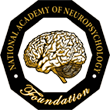 The answer to this question depends on the severity of the injury. One hallmark of a significant TBI is a loss of cognitive or thinking abilities, including concentration and memory. In young people, this may have a dramatic and negative impact on their school performance. Concurrent with these disruptions, alterations in behavior and mood are common. These changes may vary from apathy and loss of drive to irritability, impulsivity and impaired judgment. Although the types of behavior change vary widely, it is likely that they will interfere with the person’s ability to have satisfying relationships with friends and family. Many families report that while they can cope with a brain injured loved one’s physical and even cognitive problems, it’s the alterations in behavior, personality and mood that are the hardest to accept and live with. Dubbed an invisible injury because survivors of TBI often look the same as before their trauma, it is the hidden damage to their brains that can create an entirely new persona. Many marriages end in divorce because the brain injured person can no longer behave in a manner that permits a previously harmonious relationship to endure. Disruptions in critical social ties may also lead to isolation and loneliness, and may help to explain the higher rate of suicide in TBI survivors. There is hope, however, in the form of specialized therapies and medications. Neuropsychologists have an important role in treating the TBI survivor and his or her family.
The answer to this question depends on the severity of the injury. One hallmark of a significant TBI is a loss of cognitive or thinking abilities, including concentration and memory. In young people, this may have a dramatic and negative impact on their school performance. Concurrent with these disruptions, alterations in behavior and mood are common. These changes may vary from apathy and loss of drive to irritability, impulsivity and impaired judgment. Although the types of behavior change vary widely, it is likely that they will interfere with the person’s ability to have satisfying relationships with friends and family. Many families report that while they can cope with a brain injured loved one’s physical and even cognitive problems, it’s the alterations in behavior, personality and mood that are the hardest to accept and live with. Dubbed an invisible injury because survivors of TBI often look the same as before their trauma, it is the hidden damage to their brains that can create an entirely new persona. Many marriages end in divorce because the brain injured person can no longer behave in a manner that permits a previously harmonious relationship to endure. Disruptions in critical social ties may also lead to isolation and loneliness, and may help to explain the higher rate of suicide in TBI survivors. There is hope, however, in the form of specialized therapies and medications. Neuropsychologists have an important role in treating the TBI survivor and his or her family.
TBI Assessment

Before a doctor can set a broken bone, a detailed x-ray is required to guide treatment. In the same way, before someone who has sustained a significant TBI begins rehabilitation, a comprehensive and thorough neuropsychological evaluation is necessary to identify the person’s specific cognitive and behavioral strengths and weaknesses. A thorough neuropsychological evaluation employs standardized tests to assess cognition and behavior. Cognition involves a wide array of abilities from general intelligence and new learning as well as judgment and impulse control. Once a thorough examination is completed, the neuropsychologist can inform and guide the injured person and their family about the best options for rehabilitation as well as answer other critical questions about safety, independence, potential for school and work, and long-term outcomes. Because improvement and gains may occur for one or more years after a TBI, serial neuropsychological assessments may not only be useful but also necessary.


